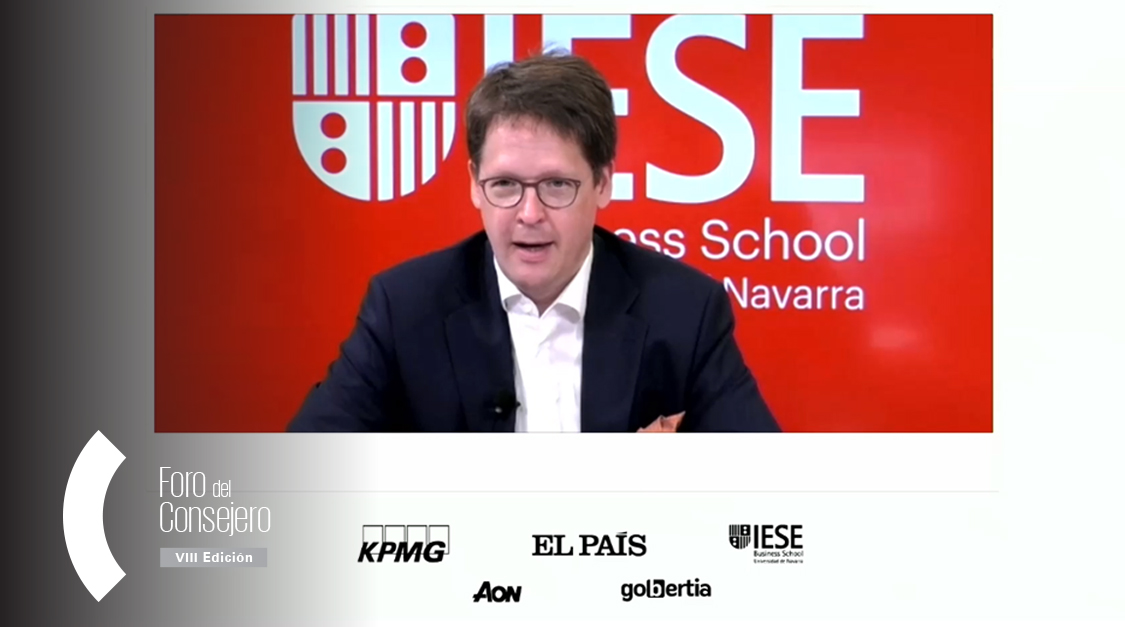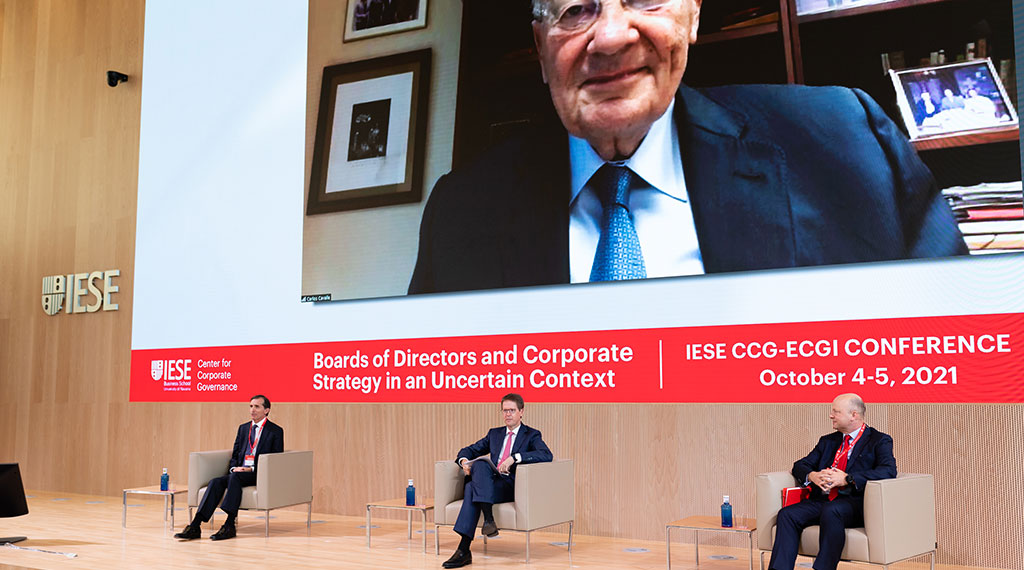Stories
How is COVID-19 changing boards of directors?
VIII Annual Director's Forum debates the impact of the pandemic on boards
Dean Franz Heukamp took part in the opening of this year’s forum.
June 3, 2020

How has the coronavirus pandemic altered the agendas of boards of directors? What measures and plans have they taken? And has telecommuting worked for board members?
Held online for the first time, the VIII Annual Director’s Forum, organized by IESE, together with KPMG and El País newspaper, got underway with interesting discussions of the role of boards in this crisis and the ways this pandemic has impacted large Spanish companies.
A session dedicated to the CEO’s vision featured leaders such as the president of the CNMV, Sebastián Albella; Cellnex CEO Tobías Martínez Gimeno; and the CEO of Banco Santander, José Antonio Álvarez.
“The importance of boards, auditing committees and external directors in terms of risk control and transparency of information is essential,” Albella said, noting that the CNMV is working to reform its good governance code for listed companies. “We are going to establish communications policy, in addition to advising companies to make general shareholders’ meetings available via videoconference. The document will also include measures to promote diversity in management.”
The CNMV president said he was pleased that, despite the current crisis, there is still news of activities such as public offerings among listed companies. “The market must stay active…Boards must also put the interest of their shareholders forward, and look positively at these developments,” he said.
Mixed Reviews for Remote Boards
Cellnex’s Martínez Gimeno noted that working virtually required greater preparation and dedication from board members, “as well as greater rigor.” “When members speak they have to take turns and think and prepare what they’re going to say much more,” he said. But he said that, overall, remote interactions were less frequent and less efficient.
Martínez Gimeno said Cellnex has not had to revise its strategy or its growth: “Our strategy hasn’t changed, but what we have had to do is alter some projects that were already underway.”
One change in his organization is that remote working is here to stay. “This crisis has accelerated changes such as the way we work and relate to each other. All crises speed up transformations,” he said.
Banco Santander’s Alvarez, meanwhile, said that in a health crisis such as this, “the first thing you have to do is take care of employees and safeguard your business.” For that reason, Santander put into place contingency plans that meant 110,000 working from home, keeping 70% of branches open with strict safety measures, and safeguarding the continuity of the business, always following health authorities recommendations.
For Álvarez, board dynamics have not been overly affected “because we know this is a temporary situation. There have been changes in the issues to be discussed, but the board’s way of working is the same.”
“What we have seen change is in electronic payments, which have increased a lot, and this will be one of the important changes that this crisis will leave us,” he said. Álvarez said he believes that an economic recovery will require an income policy for people in the short term and preparations for the demise of some companies.
The 2020 edition of the Director’s Forum takes place throughout the week, and includes speakers such as IESE professor and Bank of Spain member Núria Mas; president of Metrovacesa, Ignacio Moreno; and Socorro Fernández Larrea, board member of Red Eléctrica, Cementos Molins and Banco Caminos.


